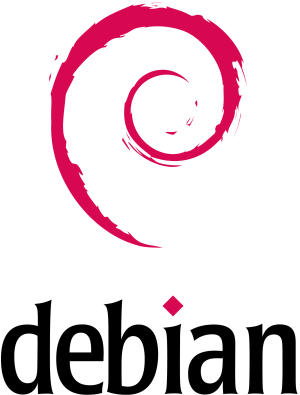
Debian is a vast, free operating system built on the pillars of community and an unwavering commitment to open principles and free software. It forms the stable bedrock for countless servers and desktop Linux distributions across the globe. It primarily uses the Linux kernel and GNU tools, making it a prominent example of a GNU/Linux distribution. Its robust package management system, powered by APT, allows users to easily install, update, and remove software.
History
Debian was founded in 1993 by Ian Murdock with the vision of creating a truly free and community-driven Linux distribution. It quickly grew into a large volunteer project, emphasizing an open development model and adherence to rigorous quality standards. From its inception, Debian aimed to provide a stable, secure, and openly developed operating system that upheld the principles of free software.
Development Philosophy and Governance
Debian's core principles are enshrined in the Debian Social Contract, a foundational document outlining its commitment to the free software community, its users, and its goals. This includes providing an entirely free operating system, avoiding hidden agendas, and maintaining an open development process.
Crucially, Debian adheres strictly to the Debian Free Software Guidelines (DFSG), which define what constitutes "free software" within the project. This commitment shapes its package repositories, which are categorized into 'main' (fully DFSG-compliant), 'contrib' (DFSG-compliant but dependent on non-free software), and 'non-free' (containing software that does not meet DFSG standards). This clear distinction provides users with control over the software freedom on their systems, aligning with its core philosophy of user choice and open source principles.
The project emphasizes stability, security, and strict testing policies, contributing to its reputation for reliability. Its development is entirely community-driven, relying on thousands of volunteers worldwide.
Installation
Installing Debian involves choosing an installation method, such as a live USB or network boot, and following a guided process to partition disks, set up the base system, and configure initial user accounts. The project provides detailed documentation and various installation images tailored for different architectures and use cases. For a comprehensive guide, refer to the Debian Installation article.
Derivatives
Debian's stable and open foundation has made it a popular base for many other Linux distributions. The most widely known derivative is Ubuntu, which itself has spawned numerous other distributions. Other notable derivatives include Mint, Kali (focused on penetration testing), and Pop!_OS. These derivatives often leverage Debian's robust package management system and vast repositories, while adding their own focus, desktop environments, or software selections.
Features
Debian is renowned for its comprehensive feature set, making it suitable for a wide range of applications:
- Robust Package Management: Utilizes APT for reliable and easy installation, updates, and removal of software, backed by a vast repository.
- Stability and Security: Emphasizes rigorous testing and quick security updates, making it a dependable choice for critical systems.
- Extensive Software Repository: Offers over 60,000 software packages, catering to diverse user needs.
- Multi-architecture Support: Provides native support for many architecture, including x86, ARM, and PowerPC.
- Desktop Environment Choice: Supports a wide array of desktop environments like GNOME, KDE Plasma, XFCE, and LXDE, allowing users to customize their interface.
- Bootsplash: Includes Plymouth for an attractive graphical bootsplash during system startup. For setup and customization, see Plymouth Configuration.
Debian Versions
Debian follows a time-based release schedule, though new stable versions are only released once they meet strict quality standards. Each release is given a codename, often from characters in the Toy Story films.
- Stable (current): Debian 12 "Bookworm"
- Oldstable: Debian 11 "Bullseye"
- Testing: Debian 13 "Trixie" (next stable release)
- Unstable: "Sid" (the development branch, always in flux)
- Historical example: Debian 10 "Buster"